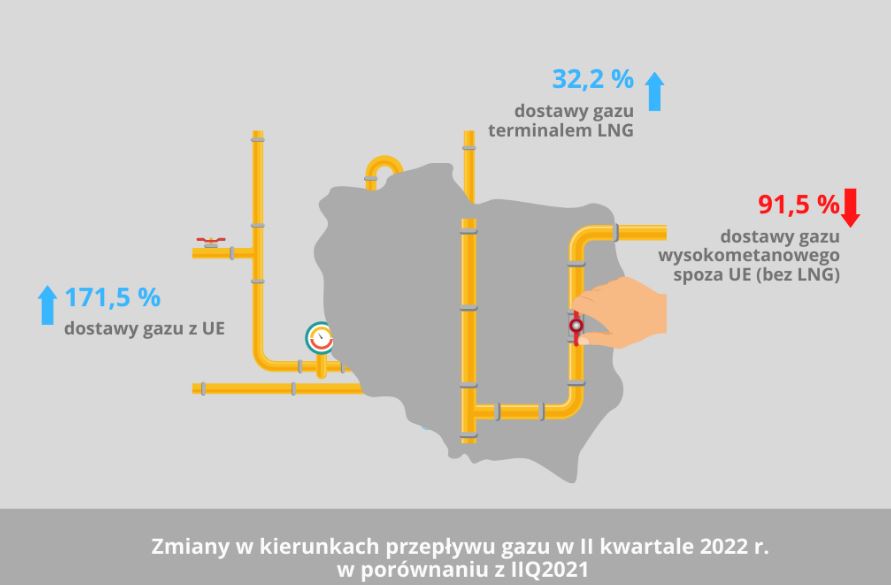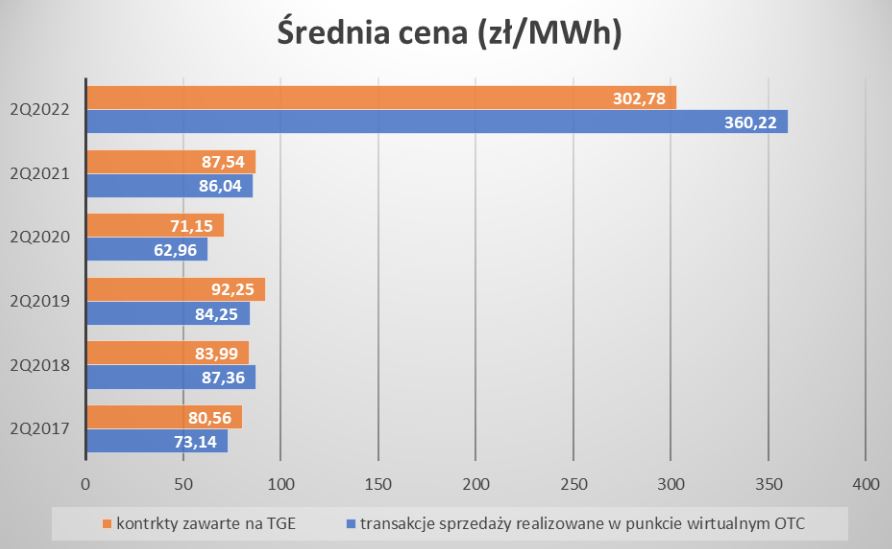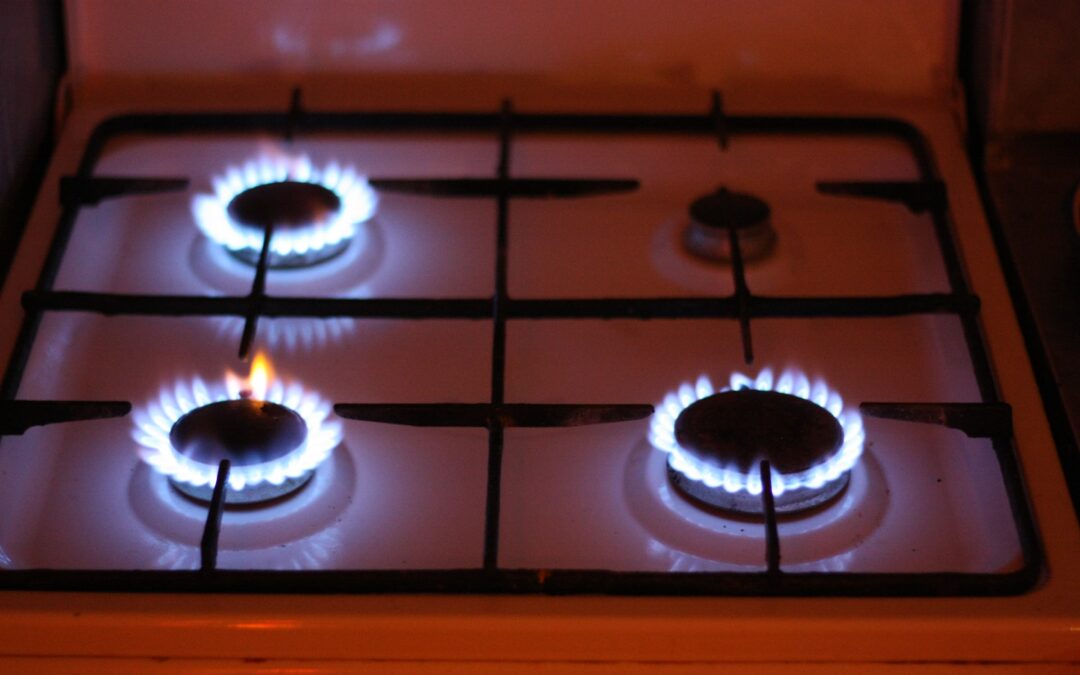Deliveries of gas to Poland from outside the European Union – excluding liquefied natural gas (LNG) – decreased by 91.5% year-on-year in the second quarter of 2022, after Russia cut off supplies in April. Meanwhile, over-the-counter (OTC) prices of gas increased fourfold.
But despite the dramatic fall in non-EU supplies, the overall volume of gas supplies to Poland remained fairly stable, decreasing only by less than 1.5% year-on-year to 33.6 terawatt-hours (TWh).
That was because, during the period from April through June, gas supplies from within the EU to Poland increased by 171.5% year-on-year and deliveries of LNG rose 33.2% year-on-year, according to figures from Poland’s state Energy Regulatory Office (URE).

Changes in gas flows from outside the EU, within the EU, and through the LNG terminal in the second quarter of 2022 compared to the second quarter of 2021. Source: URE
URE notes, however, that, amid Russia’s war in Ukraine, there has been a strong upward pressure on gas prices.
The price of contracts on the Polish Power Exchange rose in the second quarter by nearly 246% year-on-year to 302.78 zloty per megawatt-hour (MWh) on average. Prices in the off-exchange market have risen even further, increasing by nearly 320% to 360.22 zloty per MWh.
“Natural gas is traded predominantly in exchange transactions. In the second quarter of 2022, the average price of gas supplied in this way was significantly lower than in OTC transactions,” said URE in the statement.

Average gas price (PLN/MWh) on the Polish Power Exchange (orange) and in the off-exchange market (blue). Source: URE
Russia’s Gazprom, which was previously the largest supplier of gas to Poland, stopped deliveries in April after Warsaw refused to comply with Moscow’s demand to pay in rubles.
The Polish government had in any case announced that it would not renew its contract with Gazprom after it expires at the end of 2022. It has for years been seeking to ensure alternative gas supplies to ensure energy independence from Russia.
That has included a growing number of shipments through the LNG terminal in Świnoujście, with a further floating terminal planned for Gdańsk. On 1 October, gas also started flowing through the Baltic Pipe, which connects Poland with Norwegian gas fields via Denmark.
Nevertheless, Poles are, like other Europeans, bracing for a difficult winter amid soaring energy prices. In a bid to soften the blow, the Polish government is working with EU partners to introduce a cap on gas prices at the EU level, climate minister Anna Moskwa announced on Monday.
“At the moment, in this initiative group, that is Poland, Belgium, Italy and Greece, we are preparing a legislative solution,” Moskwa told Polskie Radio, adding that Germany, Denmark, the Netherlands and Hungary “were not keen on adopting any solution, but also did not close themselves off from working on the solution”.
Main photo credit: Mykola Makhlai / Unsplash

Alicja Ptak is deputy editor-in-chief of Notes from Poland and a multimedia journalist. She has written for Clean Energy Wire and The Times, and she hosts her own podcast, The Warsaw Wire, on Poland’s economy and energy sector. She previously worked for Reuters.




















